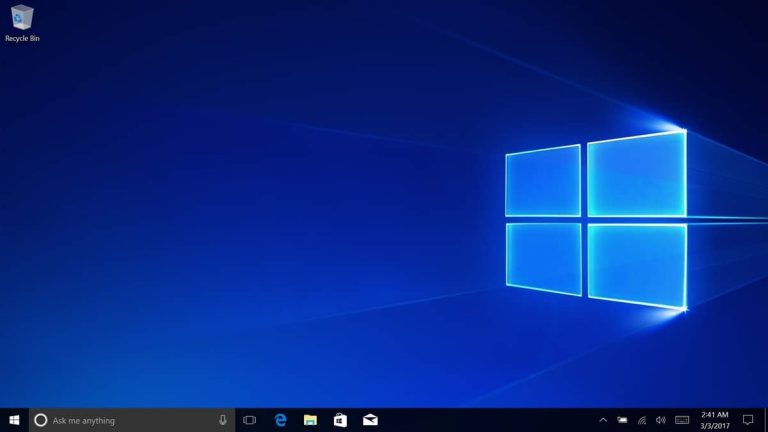This month’s Patch Tuesday updates are now available for users on Windows 10 versions 1903 and older. Microsoft has just released the Windows 10 November update for users already on the version 1903, but not all “seekers” will be able to download it immediately as there may be some compatibility issues with certain hardware. In the meantime, Windows 10 users currently on the version 1903 are getting the build 18362.476 today, while users already running the version 1909 are getting the build 18363.476.
Microsoft explained today that going forward, the release notes for Windows 10, version 1903 and Windows 10, version 1909 will share the same update history page: That’s because the version 1909 is just a service pack for the version 1903, and version 1909 version will always get the latest patches for both 1903 and 1909 (though the reverse isn’t true, some 1909 patches won’t be available for 1903). Moreover, the company explained that all the new 1909 features were already included in last month’s Patch Tuesday update for Windows 10 version 1903, though they are currently not enabled.”These new features will remain dormant until they are turned on using an enablement package, which is a small, quick-to-install “master switch” that simply activates the Windows 10, version 1909 features.”
This is typical Microsoft, of course, but keep in mind that Windows 10 version 1903 will continue to be supported alongside the version 1909 for months to come. Anyway, here are the fixes included in the builds 1903 build 18362.476 and the 1909 build 18363.476 today:
- Addresses an issue in the Keyboard Lockdown Subsystem that might not filter key input correctly.
- Provides protections against the Intel® Processor Machine Check Error vulnerability (CVE-2018-12207). Use the registry setting as described in the Guidance KB article. (This registry setting is disabled by default.)
- Provides protections against the Intel® Transactional Synchronization Extensions (Intel® TSX) Transaction Asynchronous Abort vulnerability (CVE-2019-11135). Use the registry settings as described in the Windows Client and Windows Server articles. (These registry settings are enabled by default for Windows Client OS editions and Windows Server OS editions.)
- Security updates to Microsoft Scripting Engine, Internet Explorer, Windows App Platform and Frameworks, Microsoft Edge, Windows Fundamentals, Windows Cryptography, Windows Virtualization, Windows Linux, Windows Kernel, Windows Datacenter Networking, and the Microsoft JET Database Engine.
- Microsoft has listed only one known issue for these two builds, which may prevent you from creating a local user when using Input Method Editor (IME) when setting up a new Windows device during the Out of Box Experience (OOBE). The company says that a fix will be available in an upcoming release.
If you’re still running Windows 10 version 1809, things are quite simpler for you. The build 17763.864 (KB4523205) is now available to download with the following fixes:
- Addresses an issue that might cause the Microsoft Defender Advanced Threat Protection (ATP) service to stop running and stop sending reporting data.
- Provides protections against the Intel® Processor Machine Check Error vulnerability (CVE-2018-12207). Use the registry setting as described in the Guidance KB article. (This registry setting is disabled by default.)
- Provides protections against the Intel® Transactional Synchronization Extensions (Intel® TSX) Transaction Asynchronous Abort vulnerability (CVE-2019-11135). Use the registry settings as described in the Windows Clientand Windows Server articles. (These registry settings are enabled by default for Windows Client OS editions and Windows Server OS editions.)
- Security updates to Microsoft Scripting Engine, Internet Explorer, Windows App Platform and Frameworks, Microsoft Graphics Component, Windows Input and Composition, Microsoft Edge, Windows Fundamentals, Windows Cryptography, Windows Virtualization, Windows Linux, Windows Kernel, Windows Datacenter Networking, Windows Peripherals, and the Microsoft JET Database Engine.
Be aware that this build as the same known issue mentioned above for Windows 10 versions 1903 and 1909, plus two other issues that were already present in the previous update for Windows 10 version 1809. We invite you to check out the full release notes for more details.
For Windows 10 Home and Pro users still on Windows 10 version 1803, the build 17134.1130 (KB4525237) is the last update you’ll be able to install for this version of Windows 10. Microsoft will continue to support the version 1803 for Enterprise and Education users, but everyone else should soon be forced to move on to the version 1903 or 1909. Anyway, here are the release notes for the build 17134.1130:
- Addresses an issue that causes events that are based on Windows Defender Application Control Code Integrity to be unreadable.
- Provides protections against the Intel® Processor Machine Check Error vulnerability (CVE-2018-12207). Use the registry setting as described in the Guidance KB article. (This registry setting is disabled by default.)
- Provides protections against the Intel® Transactional Synchronization Extensions (Intel® TSX) Transaction Asynchronous Abort vulnerability (CVE-2019-11135). Use the registry settings as described in the Windows Clientand Windows Server articles. (These registry settings are enabled by default for Windows Client OS editions, but disabled by default for Windows Server OS editions.)
- Security updates to Microsoft Scripting Engine, Internet Explorer, Windows App Platform and Frameworks, Microsoft Graphics Component, Windows Input and Composition, Microsoft Edge, Windows Cryptography, Windows Virtualization, Windows Linux, Windows Kernel, Windows Datacenter Networking, Windows Peripherals, and the Microsoft JET Database Engine.
Microsoft has also released new Patch Tuesday updates for Windows 10 versions 1709, 1703, 1607, and 1507, but these are only available for Enterprise and Education users. Windows 10 Mobile users are also getting a penultimate patch today before the OS finally reaches end of support next month.


